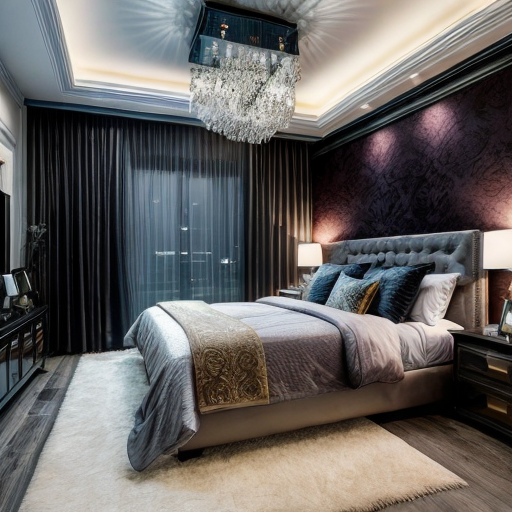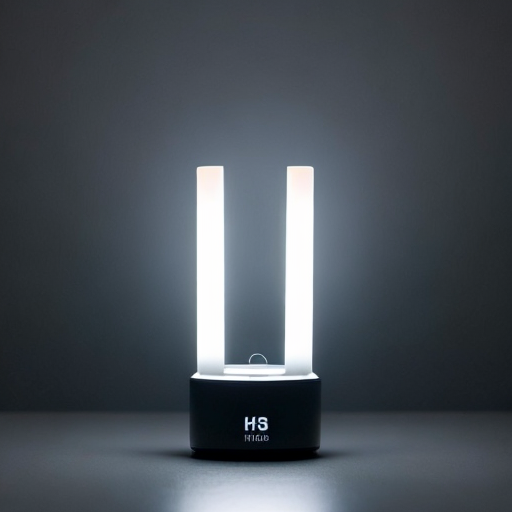Understanding the Concept of a Smart Home
Picture this: you walk into your home, and it welcomes you like a long-lost friend. The lights magically turn on, the temperature adjusts to your liking, and your favorite tunes start playing in the background. No, you haven't stumbled into a sci-fi movie; you've just entered the realm of a smart home. A smart home is like having a personal butler, except it's not a person, and it won't judge you for eating ice cream straight from the tub. It's a house that's been upgraded with the latest technology to make your life easier, more convenient, and dare I say, a tad bit magical. From controlling appliances with a simple voice command to having your coffee ready the moment you wake up, a smart home is the epitome of modern living. So, bid farewell to the days of fumbling for light switches or worrying about leaving the oven on because, in a smart home, everything is just a tap, swipe, or voice command away.
Key Components and Technologies in a Smart Home
An interesting fact about what is considered a smart home is that it can actually help conserve energy and reduce carbon emissions. Smart home technology allows homeowners to remotely control and automate various aspects of their home, such as lighting, heating, cooling, and appliances. By optimizing energy usage and reducing wastage, smart homes can significantly contribute to energy efficiency. For instance, smart thermostats can learn and adapt to homeowners' preferences, adjusting temperature settings based on occupancy and weather conditions, ultimately reducing energy consumption. Additionally, smart lighting systems can automatically turn off lights in unoccupied rooms, further saving electricity. These energy-saving features not only benefit homeowners by reducing utility bills but also have a positive impact on the environment by lowering greenhouse gas emissions.
In the world of smart homes, there are a few key components and technologies that make the magic happen. First up, we have the hub, the brain of the operation, connecting all the devices and making sure they play nice together. Then, there are the smart speakers, like the ever-popular Alexa or Google Home, ready to answer your questions, play your favorite tunes, and control your smart devices with just a few words. Of course, we can't forget about the smart thermostats, ensuring your home is always at the perfect temperature, and the smart locks, giving you the power to lock and unlock your doors from anywhere in the world. And let's not overlook the smart lights, allowing you to set the mood with a rainbow of colors or simply turn them off without getting out of bed. With these technologies, a smart home is like a symphony, with each component playing its part to create a harmonious and convenient living experience.
Benefits and Advantages of Living in a Smart Home

Living in a smart home comes with a plethora of benefits and advantages that can make your life easier, more convenient, and even save you money. One of the biggest advantages is the ability to control your home from anywhere in the world. Forgot to turn off the lights before leaving for vacation? No problem! With a smart home, you can simply open an app on your phone and switch them off. This not only gives you peace of mind but also helps you save on energy bills by avoiding unnecessary usage.
Another advantage of a smart home is the integration of various devices and appliances. Imagine waking up to the smell of freshly brewed coffee, as your smart coffee maker starts brewing the moment your alarm goes off. Meanwhile, your smart thermostat has already adjusted the temperature to your liking, and your favorite morning playlist is playing softly in the background. With everything seamlessly connected, your mornings become a breeze, and you can start your day on the right foot.
Smart homes also offer enhanced security features. From smart locks that allow you to remotely lock and unlock your doors to security cameras that provide real-time monitoring, you can have peace of mind knowing that your home is protected. Some smart home systems even send alerts to your phone if any unusual activity is detected, allowing you to take immediate action. This level of security not only protects your home and belongings but also provides a sense of comfort and safety for you and your family.
In addition to convenience and security, smart homes can also help you save money in the long run. With smart energy management systems, you can monitor and control your energy usage, optimizing it for efficiency. Smart thermostats, for example, can learn your preferences and adjust the temperature accordingly, reducing energy waste. Similarly, smart lighting systems can automatically turn off lights when no one is in the room, saving electricity. These small changes can add up over time, resulting in significant savings on your utility bills.
Living in a smart home is like having a personal assistant that takes care of your needs and preferences. From controlling your home's environment to managing your energy usage and enhancing security, the benefits and advantages of a smart home are undeniable. So, embrace the future of living and enjoy the convenience, comfort, and savings that come with a smart home.
Exploring the Future of Smart Homes: Emerging Trends and Innovations
A fun fact about smart homes is that they can actually help you save money on your utility bills! By automating and optimizing energy usage, smart homes can reduce energy waste and lower your electricity and water bills. So not only are they convenient and futuristic, but they can also be financially savvy!
The future of smart homes is an exciting realm of endless possibilities, with emerging trends and innovations constantly pushing the boundaries of what a smart home can do. One such trend is the integration of artificial intelligence (AI) and machine learning, allowing smart homes to learn and adapt to your preferences over time. Imagine a home that anticipates your needs, from adjusting the lighting to match your mood to suggesting recipes based on your dietary preferences. Another exciting innovation is the rise of smart appliances that can communicate with each other, creating a seamless and interconnected ecosystem. For example, your smart refrigerator can automatically order groceries when it detects that you're running low on essentials. Additionally, the integration of voice assistants and smart speakers continues to evolve, with more advanced natural language processing and voice recognition capabilities. The future of smart homes is a world where technology seamlessly integrates into our daily lives, making our homes more intuitive, efficient, and personalized than ever before.

